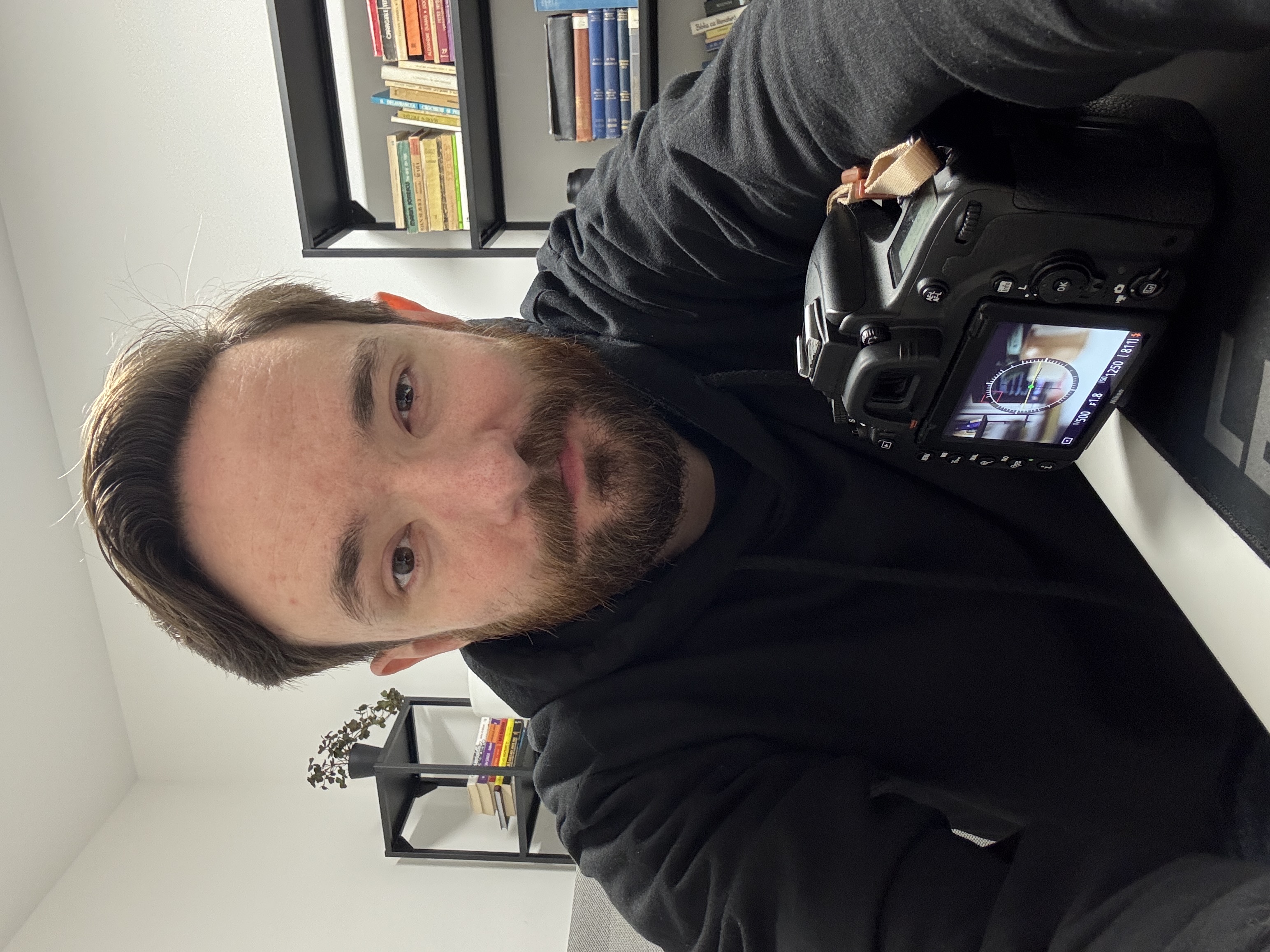
Posting on social media isn't about bragging!
Hello friend,
It passed more than 10 months since I started thinking about my personal branding. I wasn’t into social media, and I still think it’s not the best place to spend all your free time.
But, with boundaries, you can really benefit from having a social media presence, or at least from following the right people and publications.
The purpose of this post is to describe some things I’ve learned about social media: what I like, what I don’t like, why it might be a great idea to consider posting on social media, and so on.
Disclaimer: I’m not an expert in the marketing field. I’m just trying to learn, to understand and to apply as many things. I’m experimenting, failing and hoping that I’m an inspiration for others, that they feel motivated to try new things. This is not an exhaustive list of tips, but rather my experience. I might be wrong about all of it, so take my advice with a pinch of salt.
Let’s get it started:
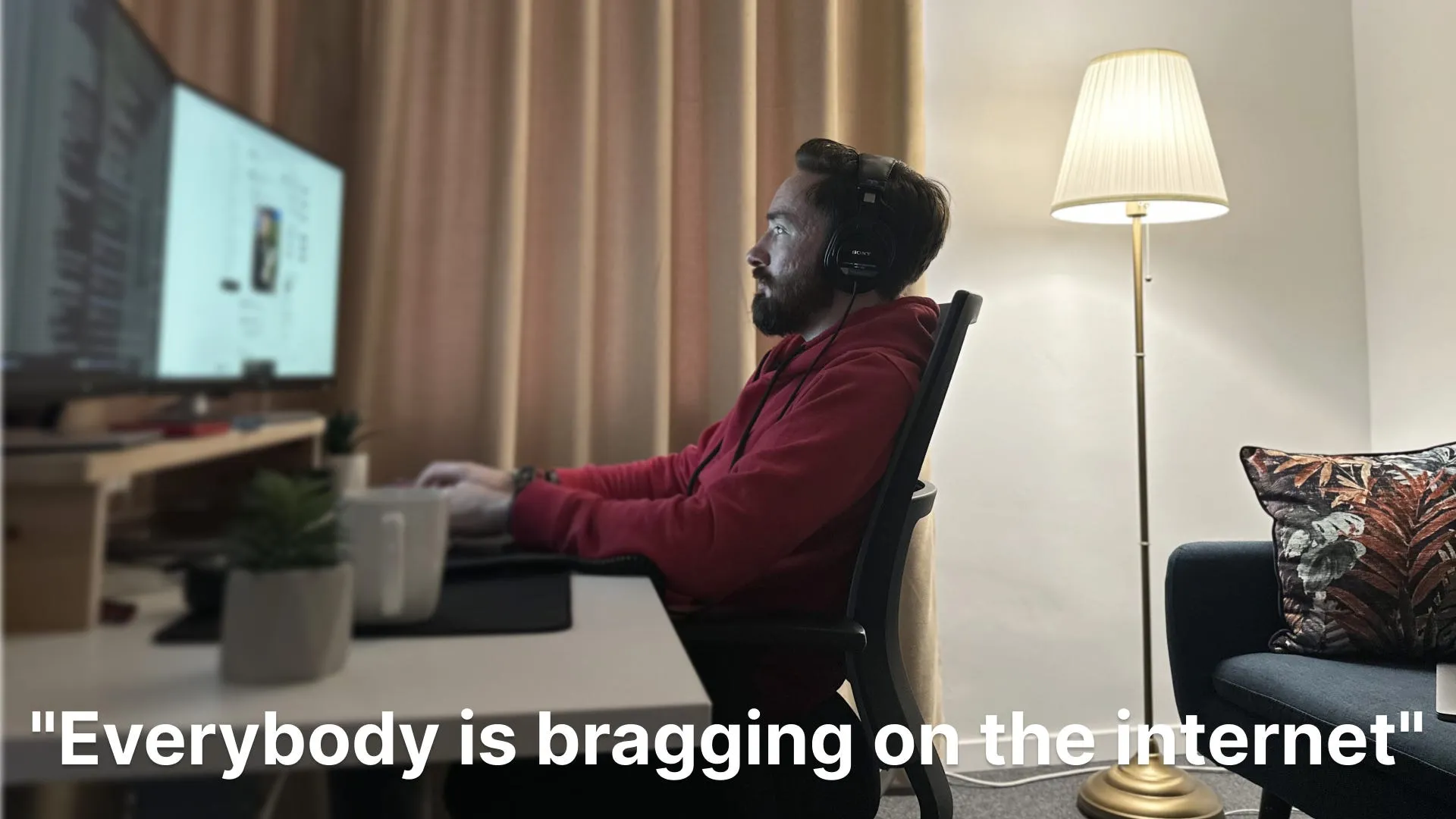
What is personal branding
I think personal branding refers to everything you do that makes you different from others.
Personal branding is not lying, or pretending to be someone else, but rather properly articulating who you are and what you think.
Even though this is an important component, personal branding is not just about social media presence. You already have a “personal brand”. When you meet your friends, talk to others or interact with your colleagues, you already behave in a way that’s specific to you. Personal branding is just enhancing who you really are.
When it comes to social media posting, having a personal branding doesn’t mean you have to share everything you do online. On a daily basis, I drink coffee, try to eat healthy food, ride my bicycle, play drums, do some exercises from time to time, read books and watch other vlogs. I also do physical work around the house, help my parents with their business. I post on social media, write cod and try to build apps. I do a lot of things, but that doesn’t mean I have to post about everything. I post about certain things, and with a specific frequency. That’s where personal branding strategy helps: filtering out what doesn’t need to appear online.
”Everybody is bragging on the internet”
This is a really important point: posting online isn’t about bragging. Indeed some might post because for that very reason: to show off. But real personal branding is not about that. It’s actually about sharing who you really are, what you do and how you do it. It’s about sharing success, but also failures - that’s what makes you human.
This is why I’m active online: I’m not trying to compete with others or show off. Even if I share some achievements and my successes, I’m doing it to encourage you, to show that it’s possible for you to find your own path to success.
What are my distinguishing attributes?
Before addressing some misconceptions, I want to give you some details about what makes us unique. There are certain distinguishing elements that we each have. You were born to have some characteristics, and you’ve learned or developed others.
You have a specific height and certain physiognomic characteristics that others can notice. You’ve also developed habits. You walk in a certain way, you have a particular posture, or you talk in a certain way. Some habits are choices: maybe you enjoy a morning routine, or you’re a night owl who works all night. You like reading, or you dislike, who knows what. You might have these habits already, and people around you can recognize and distinguish you by others.
Maybe you studied medicine and you behave differently compared to someone who studied tech, let’s say. For example, many people, when they met me for the first time, after a short conversation said: “Do you work on the computer? Are you a programmer? I just knew for sure you were in tech by the way you talk and think.”
Now, there are things you can choose to represent you, like specific cloths that you like or a particular car model. Most of the time we pick things or do things other people around us are doing, because we want to be part of that group. The combination of all these decisions becomes, in fact, our distinguishing attributes, what makes us unique.
From all these elements, you can select some to highlight, and you can use in building your personal branding. Some might be relevant, while others not so much.
I’ll give you my example so you can understand: I picked the color red because it’s vibrant and exciting. I tend to use the same colors in my posts: black, white and red accents.
I’m in tech, I’ve been coding for 10+ years. I want my accessories and my cloths to reflect that: I wear a MOLLE webbing backpack all the time. Not a leather one, or a generic blue one, but a black one, in the techwear style if possible. My laptop is full of stickers related to coding, open source, music, and content creation.
I don’t say you should change your style or clothes if you don’t want to. Just find what already works for you and makes you unique. You have a mix of things you like and dislike. Just put them together, harmonize them and use them to have a coherent personal brand.
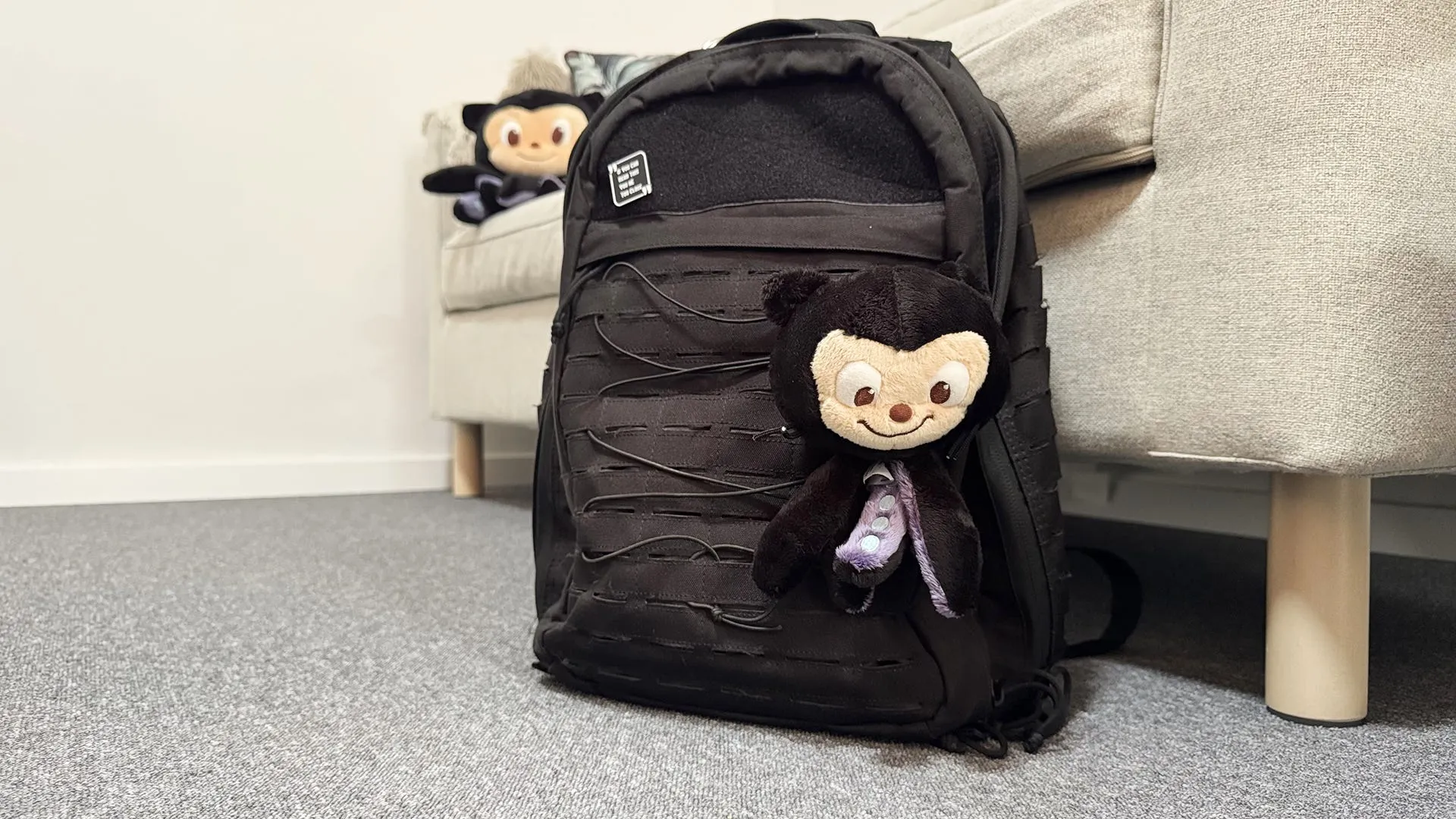
Why should you post online now that we have AI
Have you ever tried to call your internet provider, or the electricity provider and a robot answered? Did you enjoy talking to that thing? I hate it. I get it - it’s the affordable solution and it can serve many people. But it’s usually a horrible experience.
AI is great for research. It can automate tasks, and even generate content. But it’s not human. There’s something in human interaction that you just can’t get from AI. Posting online can show others that you’re human, you’re vulnerable, you’re creative and you bring value. Is your content imperfect? Yes. Mine is as well. Full of misspellings and typos. But it’s mine. And people value that.
I’m not saying “don’t use AI”. You can create an educational channel or business and automating content generation can be a great idea. But when it comes to personal branding, I think you should be as personal as possible, within your boundaries and based on the strategy you defined.
I was worried about speaking English
I was soooo worried that others would make fun of me because of my English-speaking skills. At some point, I even took a few English lessons. I don’t know all the expressions or idioms, but I could speak pretty well.
But of course, I still make a lot of mistakes to this day. And that’s totally fine. It depends on the field you work in, but in tech there are so many non-native English speakers who thrive. Your communication skills will get better and better. It’s about progress. Remember the “be authentic” advice? Improving your communication skills is one way of being authentic.
Watch some Youtube public speaking videos and you can level up your skills so fast. You can also write a post like this:
“I was afraid that my communication skills weren’t great, but I found this newsletter that helped me overcame my fear: https://razvanmuntian.substack.com/”
Thank you! 🙏
Also check out this podcast:
“What would friends & family say?”
They’d throw tomatoes at you and block your phone number: IT WON’T HAPPEN.
Here’s the thing: you should be consistent with what you already do in your day-to-day life. You’re trying to live a beautiful life, to enjoy your coffee while doing some work. Maybe you have a small business in a small town. Perfect. Share about that. People already know about your activity, or that you like reading books. Don’t make up things just to look good. Share who you really are.
Do you want to hear the truth in my case after posting on social media?
NOBODY CARED.
NOBODY from my close friends made fun of me. Some were actually interested because they had their own businesses and asked for advice.
And if someone does make fun of you, what? They’re going to do it regardless. Put your principles on paper, write down your goals, define what you want to achieve, and let’s get started.
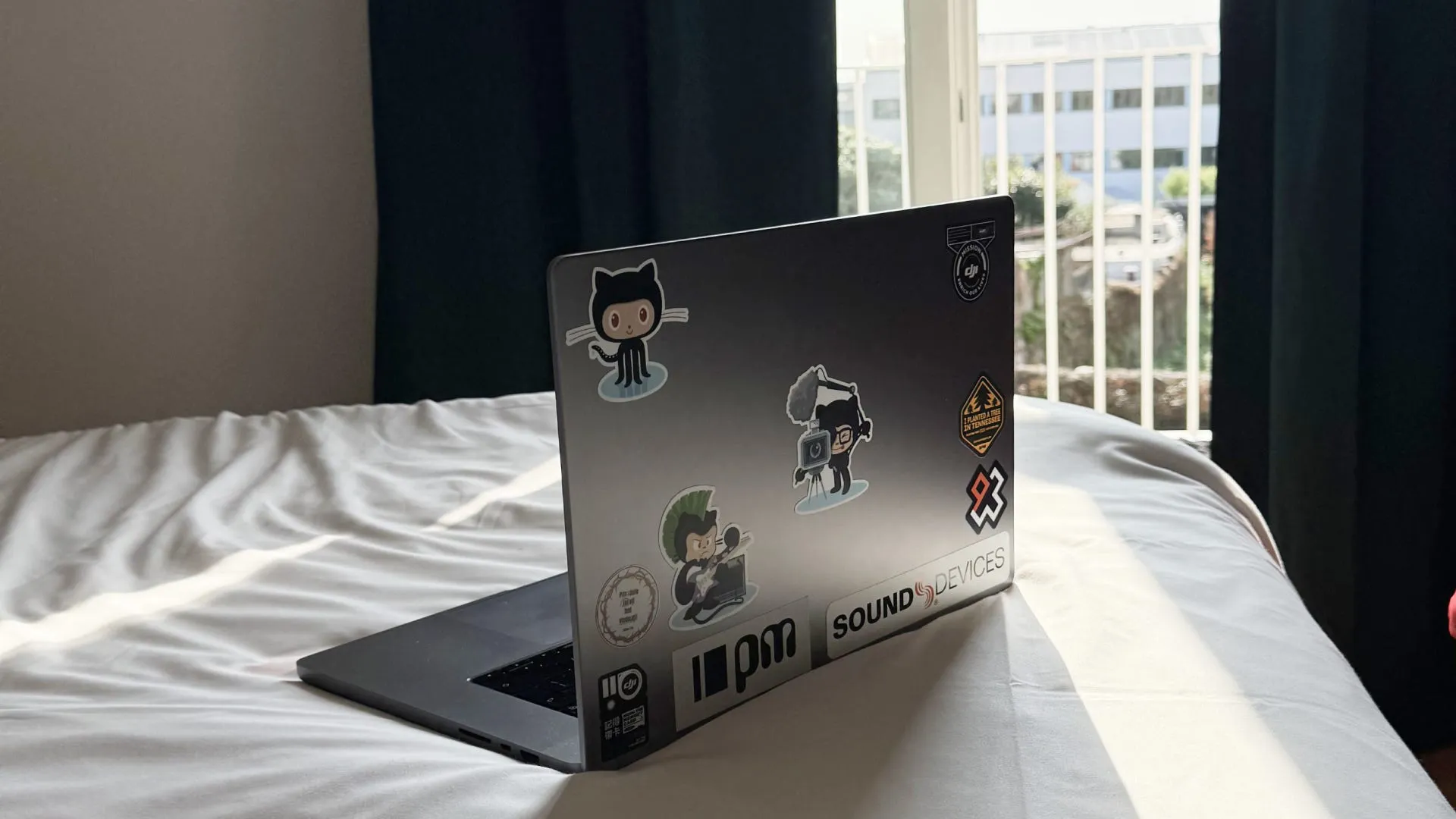
“I don’t know what to post about”
From my research, there are mainly 3 categories of posts I could identity. There might be some overlap, and this is not an exhaustive list. But let’s start with these 3 for now:
- Teach - All the tutorials, guides, how-to’s go into this category. The purpose is to teach others something from your field.
- Sell - If you have a business or you’re a freelancer, you’ll want to promote your services or products online. These posts have this purpose: talking about your products, offering discounts and coupons, and so on.
- Inspire - I called this Inspire, even though it’s not exactly that. Basically, you share the behind-the-scenes content: what you do, how you do it and why you do what you do. You can show what you like and remind people that you’re a human (in case you really are a human I suppose 😛).
I’d say you should definitely consider posting in the Inspire category, since that’s how people get to know you. You should plan based on your target audience: when to post, on what schedule, what types of posts to make, in what format (long form or short form), and so on. It’s beyond the scope of this newsletter, but this is your starting point. Figuring out how the posts should look is your first step. But don’t overcomplicate things!
What to post about? The short answer: everything you feel like posting about.
Here’s what I do: I’m building apps, trying to connect with other makers, I travel when I get the chance, and I try to get better and enjoy life in general. So I post about my apps, the process of building them, the bugs and crashes. Also I share the behind-the-scenes content: my desk setup, my backpack, what I do on a daily basis, morning coffee while coding and the list goes on and on.
While digital nomading, I share the locations I’m in. I was really inspired by my recent trip to Porto 🇵🇹. I simply shared what I did there and how that trip helped me work on my projects.
There are so many things you can post about. If you pick the right niche (something you’re already interested in or you’re already working on) you already know valuable lessons you can share with the world. Just start posting, and you’ll figure out new ideas along the way, I promise.
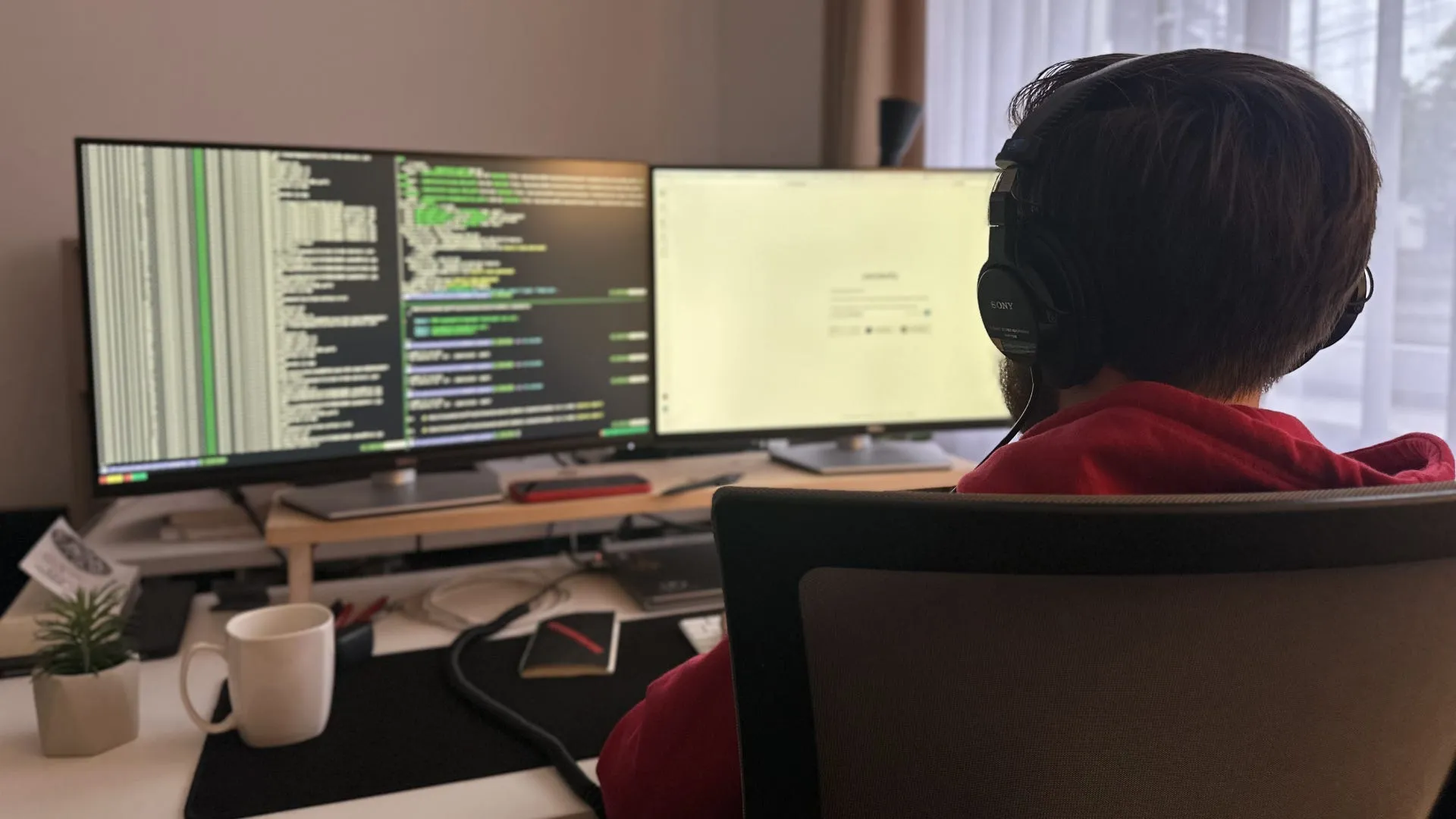
“Where should I post?”
This can become a very long discussion and social media platforms keep changing every month. Also, there aren’t any magic recipes, and I can’t guarantee that you’ll get tons of followers or become rich. I’m trying to give you some advice so you can have a solid foundation, and then continue expanding your knowledge with more advanced resources.
I’ll walk you through multiple social media platforms and share my experience with them and what I’ve observed:
Focused on visual, Instagram it’s mostly short-form content. You can post photos, videos, carousels, reels, shorts, all sorts of things. I think lifestyle posts and behind-the-scenes posts work well. It’s not really in my sphere, so I only post here every once in a while. But it might work well for your needs.
X (formerly Twitter)
X (or Twitter) is focused on short text-based posts. Recently they added the ability to post videos and to even do livestreams. There are some interesting communities you can join. In my case, I found multiple communities of indie makers and software developers. It’s one of the places where I’m most active. You can also use it to follow the news, or maybe even start your own news-style publication in your field. Why not?
Bluesky
This platform started as a competitor to Twitter. After all the drama on X with US elections and all that, Bluesky started gaining traction. There’s also a developers community and an indie maker community here, so I’m also active on this platform too (not as much as on X).
I’ve heard stats saying that only 1-2% of users on Linkedin actually post anything. Why is that? I think it’s because on Linkedin you put your real self out there. Also it’s mostly business-oriented, and people usually post job openings and work-related content. I think only recently it started to feel more like a real social media platform. If your branding leans more toward the professional side, if you want to share your services or establish yourself as an expert in your domain, then Linkedin might be the place for you.
Youtube
This is the platform that I use the most for music and general content consumption. I’ve always wanted to create long-form video content, but it’s very difficult and time-consuming. You can create Shorts so, but I think the real value of Youtube is the ability to build real community around your brand, and people stick around because of your long-form content. They get to know you much better. Definitely give it a try this. It’s hard to create long videos but it’s so rewarding. I’ll definitely do that in the near future.
Newsletter
I think you’re read this article as a newsletter. You can definitely make money from a newsletter, and the beauty of it is that you don’t depend on other platforms: your message is delivered directly to your subscribers’ inbox. Now, with the newsletter you can either go the classic news direction (share different resources, write short articles and such), or take a more personal twist (like I did). Mine is similar to a journal. I don’t follow any rules. I purposely make these pretty long and authentic, because the newsletter is the place where I can express my thoughts the way I’d love to see in other places. Definitely no AI-generated content or content just for clicks. This is personal and 100% authentic.
There’s a saying: “if you’re not on Facebook, you don’t exist”. Facebook is the platform I don’t use too often. Most of my friends and family are on Facebook, so I post here as well, but it’s not where my target audience is. What I usually do is repost the same content on multiple platforms. If I write a longer post for Linkedin, let’s say, I’ll post that exact one on Facebook too. Maybe you can find your audience here. I have a friend who makes good money with his business by selling through Facebook. It might seem a boring platform, but it’s still a great one.
Tiktok
I’m posting here as well. Usually, I just repost what I already shared on Instagram Reels. To be totally honest, I don’t understand the platform, I don’t like the platform, unfortunately. It’s very difficult to convert views into actual value. Having thousands of views on Tiktok doesn’t really help. I’m keeping it for the sake of having a presence, but not much more. Some people might find my apps on this platform, but it’s not something I enjoy. I might be wrong. If you want to do some short-form content, especially in niches like beauty, or entertainment, sketches or memes, this might be your platform.
Other platforms
There are other platforms that I don’t have experience with and haven’t tried yet. I’ve been willing to try Reddit, but just haven’t done it yet.
There are also other niche platforms that you might want to consider. If you’re a programmer, you’ve probably heard of Github. Also, if you enjoy reading books, maybe consider GoodReads.
In conclusion
You’re awesome for making it this far. It was a long post, but the journey just begins.
Thank you for reading this post and I hope it’s been inspirational.
I’m not an expert by any means, but I’m willing to help you with what I know and what I can.
If you want a longer discussion, reach out to me. I’m available on all the platforms listed above. To make your life easier:
- https://razvanmuntian.com/ - my personal website
- https://x.com/razvanmuntian - my Twitter account
- www.linkedin.com/in/razvanmuntian - my Linkedin account
- https://www.instagram.com/razvanmuntian - my Instagram account
See you soon!